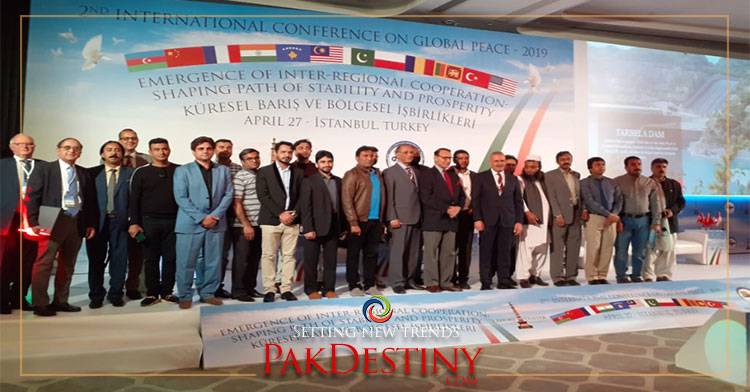
By Zulqarnain
The real challenge of statesmanship is to transcend differences, resolve conflicts through dialogue and diplomacy, and leave a legacy of peace for future generations.
This was noted at the 2nd International Conference on Global Peace held in Istanbul, Turkey on last Saturday under the auspices of Lahore Center for Peace Research (LCPR) in collaboration with its Turkish counterpart, South Strategic Research Center (GASAM). Other Turkish partners co-sponsoring the event were Turkish Asian Center for Strategic Studies (TASAM), Pakistan Alumni & Members Association (PAMDER), and Pak-Turk Friendship Foundation (PTFF). Eminent speakers from Pakistan, Turkey, Azerbaijan, Kosovo Republic, Malaysia, Poland, Romania, and United States participated in the Conference, co-chaired by Pakistan’s Former Foreign Secretary Shamshad Ahmad Khan and Cemal Demir, Chairman of Turkish Strategic Research Center.
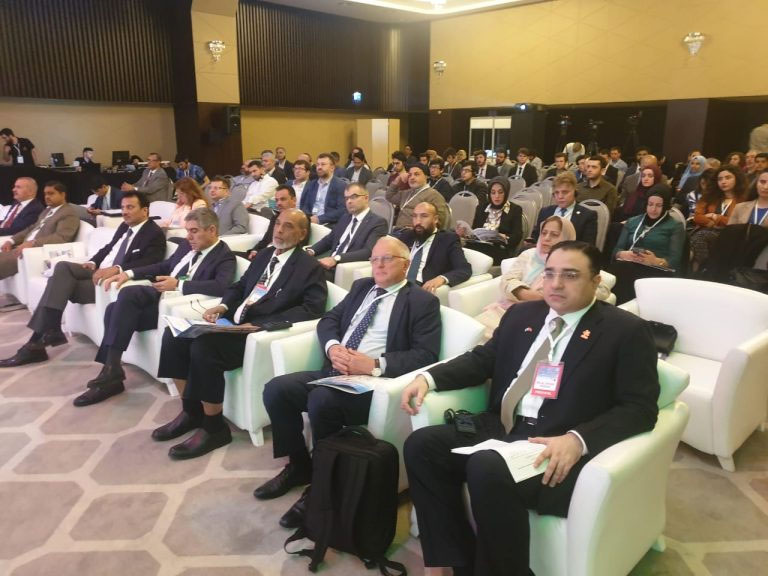
There was consensus at the conference that no economic development strategies at the national or regional levels would work if the hunger of the gods of war remains unsatisfied and until the underlying causes of conflicts are effectively addressed. This is true of South Asia, Northeast East Asia, Central Asia or West Asia as it is for Europe, Latin America, Africa,
and Middle East.
Participants agreed that peace and development go hand in hand, and nothing can pave the path for peace and security more than economic development through regional cooperation. In this connection, the conference recognised the importance of China’s Belt and Road Initiative (BRI) as a major factor of peace and prosperity across Eurasian regions. Its sole objective was to build peaceful, connected and prosperous societies in the vast region which is home to one-fourth of humanity.
It was also noted that on its part, Pakistan would welcome all countries in the region, including India, as its partners in the China-Pakistan Economic Corridor (CPEC) project. India, as a larger country in the region, must inspire confidence among its neighbours by building mutual trust and harmony and resolving disputes with its neighbours.
A renewed vigorous campaign is also needed at global level for resolving the long-outstanding questions of Palestine and Kashmir in accordance with the UN Security Council resolutions and legitimate aspirations of the Palestinian and Kashmiri people. Priority attention is also warranted on ending the ongoing wars in Afghanistan and elsewhere in Middle east.
The Conference emphasised that Asia must capitalize on its own resources and reclaim its role as a balancing factor in the unipolar world by carving out a new niche for itself in the global geo-political matrix. Asian states must rise above sub-regional mode and concentrate on a common Asian cause by concerting their policies on issues of global relevance.
It is time they also rose above their differences and resolved conflicts through dialogue and diplomacy and built a legacy of peace for future generations.
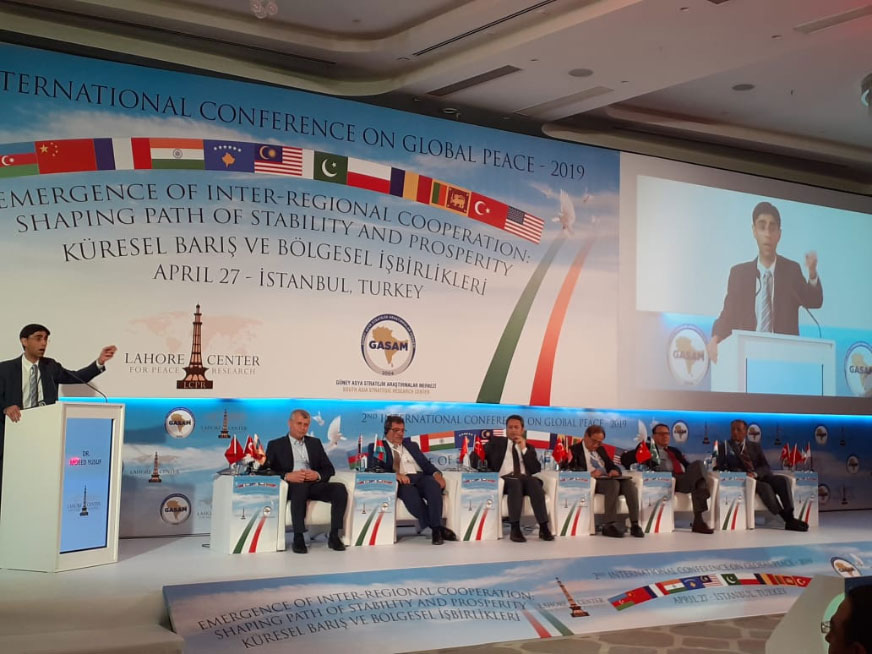
It is also time for the voices of reason and responsibility — in America, China, Russia, Europe and the Arab and Muslim world — to caution against militarism and demand strict adherence by all states, large and small, to the UN Charter’s central principle: the prohibition of the use or threat of use of force in international relations. LCPR chairman and former secretary foreign affairs Shamshad Ahmad Khan, LCPR’s executive director Dr Mujahid Mansoori, former caretaker chief minister and defence analyst Prof. Hasan Askari Rizivi and Dr Moeed Yusuf (from Pakistan) shared their analysis on the topic.
Shamshad A. Khan said peace and development went hand in hand and nothing could pave the path of peace and security more than economic development through inter-regional cooperation. He said the CPEC was not a development project of bilateral level, adopting an approach of inter-regional cooperation Afghanistan, Central Asian land locked states, Iran and India can be beneficiary of CPEC. He said in renowned vigorous campaign is also needed at global level to resolving the long standing questions of Palestine and Kashmir in accordance with UN Security Counselor.
Dr. Hassan Askari Rizvi emphasized that Asia must capitalise on its own resources and reclaim its role as a balancing factor in the uni-polar world by carving out a new niche for itself in the global geopolitical matters. — Pak Destiny

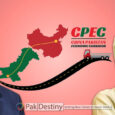
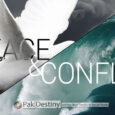
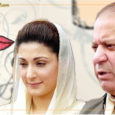

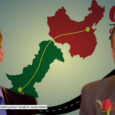
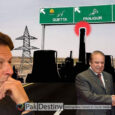
Loads of respect 👏👏👏
Loads of respect 👏👏👏
Thank you for organizing